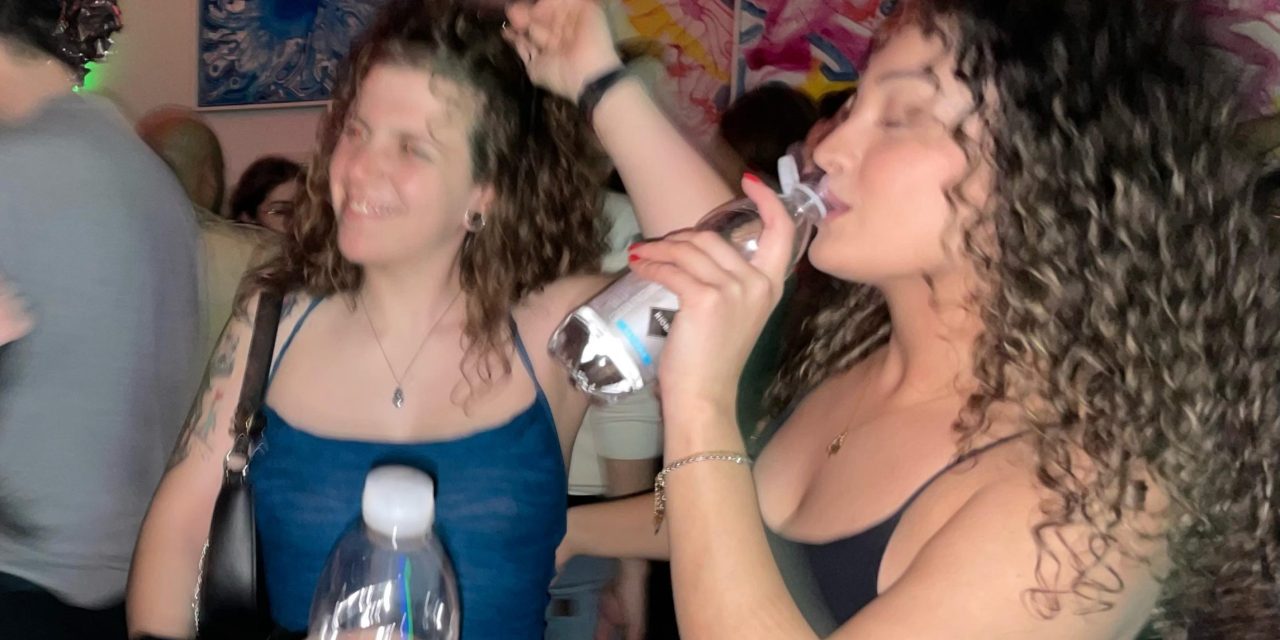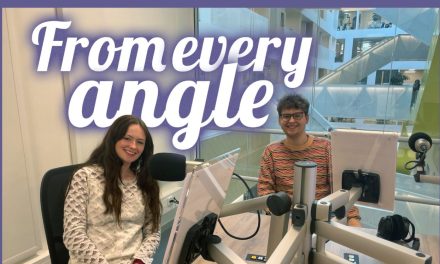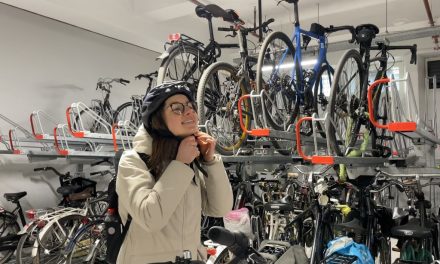When was the last time you heard someone bragging about their drinking abuse on social media? Unless your algorithm is stuck in 2015, you’ve probably noticed that sobriety is in, self-destruction is out. Mental health is taking over hedonism even in Berlin – raves capital. News about techno clubs closing is published every day but a new wave of sober parties is growing.
Is this the end of an era… or the beginning of a more mindful one?
It is just 6pm on an ordinary Tuesday in Berlin when people start to gather in front of a local dance venue. Instead of the usual black and punk outfits, typical of Berliners on nights out, people in yoga leggings and sneakers are lining to enter the club. Before going in, everyone shuts their phone and leaves their shoes at the entrance.
Some people are sitting alone on the floor – a mix of colourful carpets – some are stretching while having a conversation. The club is quite compact, many people seem to know each other but it is not intimidating: there is space also for more introverted people who wish to enjoy the time by themselves.
Like many other sober events, Tazen3000 starts with a movement workshop. Founded in 2021, it is the Berlin’s first ecstatic Dance collective, giving space to many music genres and bpm. This time the workshop aims to introduce creative ways to dance to electronic music, to later transition into a Dj set, where everyone is free to express themselves and move as they wish. This place has never known peer pressure.
”No phones, no alcohol, no substances”
The mantra of all sober events.
Today it seems younger generations are not willing to carry forward Berlin’s hedonistic characteristic culture. While taking a break from dancing, Marianna (26) from Venice, Laura (34) from Berlin and Jack (26) from London, answer the question ”What techno means to you?” and explain why they’re choosing sober events over traditional ones.
🎧 Listen here:
Statistics shows a clear disinterest of Gen Z to drinking compared to other ones. According to Statista, in 2021 only 9% of German teenagers aged 12 to 17 drink alcohol regularly, meaning at least once per week. A decade ago, this was the 40% of respondents. Also beer consumption is decreasing: 88 litres per capita in 2022 compared to almost 107 litres a decade ago.
Berlin rave scene is adapting – in the last 5 years many conscious clubbing organizations have opened in Berlin as well as Tanzen 3000, like: Sober Sensation, Lemonade Queers, Natural High Berlin, NiceDry events, Tendersesh… But sober raving was already a trend in other countries such as USA and Australia since 2010 – with organizations as Morning Gloryville, Lunch Beats, Day Breaker.
Dancing is the new drug
Listening to the interviews, it becomes clear that the central core and intrinsic reason of techno parties is dancing, not substances or alcohol anymore. Dancing is the new form of expression, some try to enter trance states through dance rather than through substances. As Dr Johansson mentions, for many years Five Rhythms workshops have been popular, where participants are taught to enter trance states through sequenced playlists performed barefoot in community halls.
Dr Johansson, Senior Lecturer at Karlstads Universitet in Sweden, has been conducting research on conscious clubbing and holistic movement practices for many years. But what is exactly conscious clubbing? He explains:
”It is an umbrella term that describe dance events which prioritize mindfulness, sobriety, and intentional movement, often blending elements of wellness culture like meditation, breathwork, and yoga with electronic music and community connection”
Forced closures of clubs during pandemic pushed dancers toward outdoor day‑raves, Zoom yoga and breath‑work circles. He states ”Many discovered they could access euphoria through movement and community alone. When venues reopened, they brought those practices back inside – guided meditation, yoga, tai chi, dance”.
Respect sobriety too
Sociologist and co-founder of Sober Nightlife, Zoe is working together with Dj Riva to make Berlin rave venues inclusive for sober people. Sober Nightlife doesn’t host events—instead it is a platform focused on making all nightlife more accessible. A resource pack was created for clubs that do not want to go full sober, to implement sober-friendly practices and make it more accessible.
In this extract of interview , Zoe explains how the awareness on sober parties is growing, why it is happening right now with Gen Z, whether this is a trend or a cultural change. Zoe presents practical changes that traditional clubs can adopt, not only for inclusion but also for survival in this changing society.
🎧 Listen here:
Zoe core message is simple but powerful: People need to be more aware of the presence of sober people at parties.
”I’ve come across many awareness campaigns in clubs over the years, and I’ve never seen anything about respecting sobriety. The focus is always on substances – super important as well. But including a small reminder about presence of sober people wouldn’t be a big deal.”
From niche to norm
Lemonade queers was created as a space for everyone who doesn’t want to drink, especially queer individuals, a community historically impacted by alcohol abuse. Vlady Schkoler, its founder, didn’t plan to start a movement or organization. He explains ”I had no sober friends at that time so I posted on Facebook asking if anyone wanted to go out sober. Around 40 people answered so we organized a meetup. Everything that followed was a natural progression”.
What started as a small gathering grew into a club, part of a broader cultural shift. ‘“A few years ago, it was just niche collectives hosting alcohol-free events,” Vlady notes. “Now even bigger clubs and underground parties are trying out sober nights. One of the drivers is simply economy: drinks have become pricey and bar sales drop, so owners are experimenting with fresh concepts”. He concludes ”I think we’ll see more sober parties popping up, and bigger collectives or venues hosting sober nights. That’s where it’s heading.”




